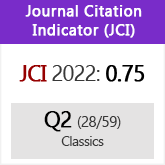Οὐ μοιχεύσεις, «No cometerás adulterio»: el mandamiento bíblico explicado por Filón de Alejandría
DOI:
https://doi.org/10.3989/emerita.2015.05.1318Palabras clave:
Filón de Alejandría, adulterio, mandamientos, Ley, Imperio romanoResumen
El objeto de este trabajo consiste en analizar la explicación del mandamiento bíblico que prohíbe el adulterio formulada por Filón de Alejandría en Sobre el Decálogo 121-131 y Las leyes particulares III 8-11. Examinaremos cómo define Filón esta transgresión y cuáles son los motivos que justifican la prohibición. Cotejaremos sus interpretaciones con el texto que funciona como base exegética, la Septuaginta, e intentaremos reconocer además las vinculaciones de su pensamiento con las dos vertientes culturales que confluyen en él, la judía y la greco-romana. De este modo, podremos comprender cómo se ubica la explicación filónica en su contexto socio-cultural y cuál es la originalidad de su pensamiento en relación con un comportamiento social igualmente repudiado por las diversas culturas coexistentes en la Alejandría imperial.
Descargas
Citas
Alon, G. 1977: «On Philo's Halakha» en Alon, G., Jews, Judaism and the Classical World: studies in Jewish history in the times of the Second Temple and Talmud, Jerusalén, pp. 89-137.
Baer, R. A. 1970: Philo's use of the categories male and female, Leiden.
Belkin, S. 1940: Philo and the Oral Law: The Philonic Interpretation of Biblical Law in Relation to the Palestinian Halakah, Cambridge.
Boyarin, D. 1995: Carnal Israel: Reading sex in the Talmudic culture, California.
Cairns, D. L. 1996: «Hybris, dishonour, and thinking big», Journal of Hellenic Studies 116, pp. 1-32. http://dx.doi.org/10.2307/631953
Cairns, D. L. 2002: Aidos. The psychology and ethics of honour and shame in ancient Greek literature, Oxford.
Carey, C. 1995: «Rape and adultery in Athenian law», Classical Quarterly 45/2, pp. 407-417. http://dx.doi.org/10.1017/S0009838800043482
Cohen, D. 1991a: «Sexuality, violence and the Athenian law of hubris», Greece & Rome 37/2, pp. 171-188. http://dx.doi.org/10.1017/S001738350002355X
Cohen, D. 1991b: «The Augustan Law on Adultery: the social and cultural context», en Kertzer, D. I. y Saller, R. P. (eds.), The family in Italy: From Antiquity to the present, New Haven, pp. 109-126.
Cohen, D. 1994: Law, sexuality and society. The enforcement of morals in classical Athens, Cambridge.
Cohn, L., Wendland, P. y Reiter, S. (eds.) 1962: Philonis Alexandrini Opera quae supersunt, 7 vols., Berlín.
Cole, S. G. 1984: «Greek sanctions against sexual assault», Classical Philology 79/2, pp. 97-113. http://dx.doi.org/10.1086/366842
Collins, J. J. 2000: Between Athens and Jerusalem. Jewish identity in the Hellenistic Diaspora, Grand Rapids y Cambridge.
D'Angelo, M. R. 2007: «Gender and Geopolitics in the work of Philo of Alexandria: Jewish piety and Imperial family values», en Penner, T. y Vander Stichele, C. (eds.), Mapping Gender in Ancient Religious Discourses, Leiden, pp. 63-88.
Epstein, L. M. 1967: Sex laws and customs in Judaism, Nueva York.
Ferguson, E. 2003: Backgrounds of Early Christianity, Grand Rapids.
Fisher, N. R. E. 1976: «Hybris and Dishonour: I», Greece & Rome 23/2, pp. 177-193. http://dx.doi.org/10.1017/S0017383500019203
Gaca, K. L. 2003: The making of fornication. Eros, ethics and political reform in Greek philosophy and early Christianity, Berkeley y Londres. http://dx.doi.org/10.1525/california/9780520235991.001.0001
Ghirardi, J. C. 2005: «Regulación jurídica de las conductas sexuales extramatrimoniales en el Derecho Romano», en Asociación de Derecho Romano de la República Argentina, Trabajos presentados – XVII Encuentro Nacional de Profesores de Derecho Romano de la República Argentina «Homenaje al Dr. Luis Rodolfo Argüello», General Roca, pp. 103-144.
Goodenough, E. R. 1929: The jurisprudence of the Jewish courts in Egypt: Legal administration by the Jews under the early Roman empire as described by Philo Judaeus, New Haven.
Harrison, A. R. W. 1968: The law of Athens. The Family and Property, Oxford.
Heinemann, I. 1973: Philons griechische und ju. dische Bildung, Breslavia.
Heinemann, I. 2008: The reasons for the commandments in Jewish thought: from the Bible to the Renaissance, Brighton.
Jeremias, J. 1969: Jerusalem in the Time of Jesus. An investigation into economic and social conditions during the New Testament period, Filadelfia.
Klawans, J. 2000: Impurity and sin in Ancient Judaism, Oxford. http://dx.doi.org/10.1093/acprof:oso/9780195132908.001.0001
Lutz, C. (ed. y trad.) 1947: Musonius Rufus: the Roman Socrates. Lectures and Fragments, New Haven.
MacDowell, D. 1978: The law in classical Athens, Nueva York.
Martín, J. P. 1986: Filón de Alejandría y la génesis de la cultura occidental, Buenos Aires.
Mathews, V. H. y Benjamin, D. C. 1996: Honor and shame in the world of the Bible, Atlanta.
Modrzejewski, J. M. 2001: The Jews of Egypt. From Ramses II to Emperor Hadrian, Skokie, Illinois.
Najman, H. 1999: «The Law of Nature and the authority of Mosaic Law», The Studia Philonica Annual 11, pp. 55-73.
Neufeld, E. 1994: Ancient Hebrew Marriage Laws. With special references to general Semitic laws and customs, Londres, Nueva York y Toronto.
Patterson, C. B. 1998: The family in Greek history, Cambridge y Londres.
Phillips, A. 2002: «Another look at Adultery», en Essays on Biblical Law, Londres, pp. 74-95.
Rahlfs, A. (ed.) 1971: Septuaginta, 2 vols, Stuttgart.
Ramelli, I. (ed.) 2009: Hierocles the Stoic: Elements of Ethics, Fragments and Excerpts, Atlanta. PMCid:PMC2678092
Smallwood, E. M. 1976: The Jews under Roman rule. From Pompey to Diocletian, Leiden.
Stiebert, J. 2002: The construction of shame in the Hebrew Bible. The prophetic contribution, Londres.
Szesnat, H. 1998: «'Pretty boys' in Philo's De vita contemplativa», The Studia Philonica Annual 10, pp. 87-107.
Treggiari, S. 1993: Roman marriage. Iusti Coniuges from the time of Cicero to the time of Ulpian, Oxford. PMid:8421137
Winston, D. 1998: «Philo and the Rabbis on Sex and the Body», Poetics today 19/1, pp. 41-62. http://dx.doi.org/10.2307/1773111
Winston, D. 2009: «Philo and Rabbinic Litterature», en Kamesar, A. (ed.), The Cambridge Companion to Philo, Cambridge, pp. 231-253.
Descargas
Publicado
Cómo citar
Número
Sección
Licencia
Derechos de autor 2015 Consejo Superior de Investigaciones Científicas (CSIC)

Esta obra está bajo una licencia internacional Creative Commons Atribución 4.0.
© CSIC. Los originales publicados en las ediciones impresa y electrónica de esta Revista son propiedad del Consejo Superior de Investigaciones Científicas, siendo necesario citar la procedencia en cualquier reproducción parcial o total.Salvo indicación contraria, todos los contenidos de la edición electrónica se distribuyen bajo una licencia de uso y distribución “Creative Commons Reconocimiento 4.0 Internacional ” (CC BY 4.0). Puede consultar desde aquí la versión informativa y el texto legal de la licencia. Esta circunstancia ha de hacerse constar expresamente de esta forma cuando sea necesario.
No se autoriza el depósito en repositorios, páginas web personales o similares de cualquier otra versión distinta a la publicada por el editor.














